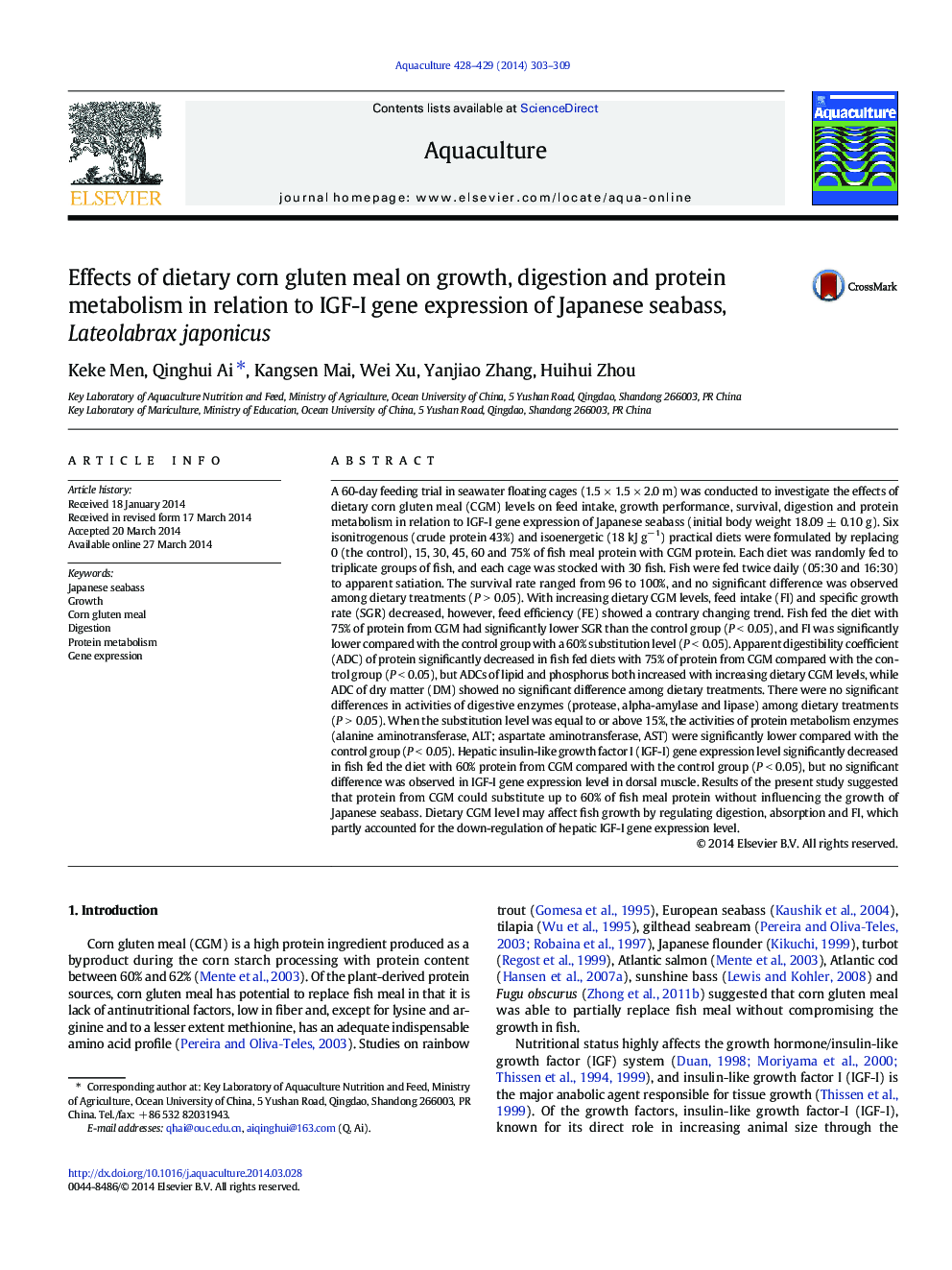| Article ID | Journal | Published Year | Pages | File Type |
|---|---|---|---|---|
| 8495093 | Aquaculture | 2014 | 7 Pages |
Abstract
A 60-day feeding trial in seawater floating cages (1.5 Ã 1.5 Ã 2.0 m) was conducted to investigate the effects of dietary corn gluten meal (CGM) levels on feed intake, growth performance, survival, digestion and protein metabolism in relation to IGF-I gene expression of Japanese seabass (initial body weight 18.09 ± 0.10 g). Six isonitrogenous (crude protein 43%) and isoenergetic (18 kJ gâ 1) practical diets were formulated by replacing 0 (the control), 15, 30, 45, 60 and 75% of fish meal protein with CGM protein. Each diet was randomly fed to triplicate groups of fish, and each cage was stocked with 30 fish. Fish were fed twice daily (05:30 and 16:30) to apparent satiation. The survival rate ranged from 96 to 100%, and no significant difference was observed among dietary treatments (P > 0.05). With increasing dietary CGM levels, feed intake (FI) and specific growth rate (SGR) decreased, however, feed efficiency (FE) showed a contrary changing trend. Fish fed the diet with 75% of protein from CGM had significantly lower SGR than the control group (P < 0.05), and FI was significantly lower compared with the control group with a 60% substitution level (P < 0.05). Apparent digestibility coefficient (ADC) of protein significantly decreased in fish fed diets with 75% of protein from CGM compared with the control group (P < 0.05), but ADCs of lipid and phosphorus both increased with increasing dietary CGM levels, while ADC of dry matter (DM) showed no significant difference among dietary treatments. There were no significant differences in activities of digestive enzymes (protease, alpha-amylase and lipase) among dietary treatments (P > 0.05). When the substitution level was equal to or above 15%, the activities of protein metabolism enzymes (alanine aminotransferase, ALT; aspartate aminotransferase, AST) were significantly lower compared with the control group (P < 0.05). Hepatic insulin-like growth factor I (IGF-I) gene expression level significantly decreased in fish fed the diet with 60% protein from CGM compared with the control group (P < 0.05), but no significant difference was observed in IGF-I gene expression level in dorsal muscle. Results of the present study suggested that protein from CGM could substitute up to 60% of fish meal protein without influencing the growth of Japanese seabass. Dietary CGM level may affect fish growth by regulating digestion, absorption and FI, which partly accounted for the down-regulation of hepatic IGF-I gene expression level.
Related Topics
Life Sciences
Agricultural and Biological Sciences
Aquatic Science
Authors
Keke Men, Qinghui Ai, Kangsen Mai, Wei Xu, Yanjiao Zhang, Huihui Zhou,
